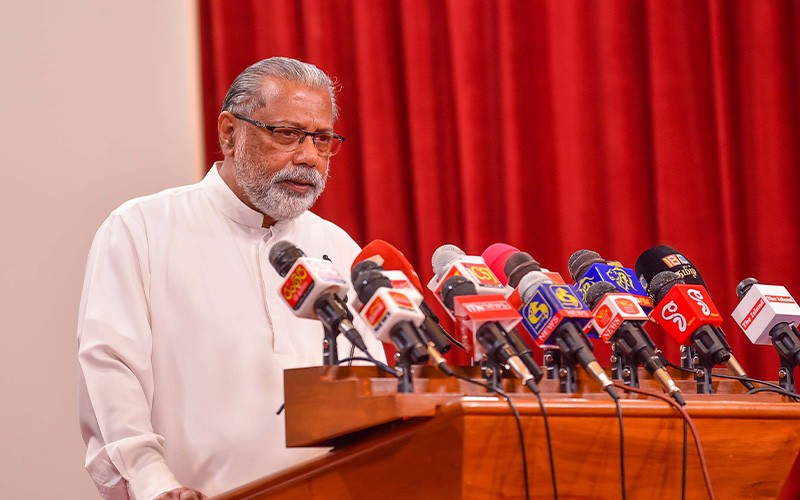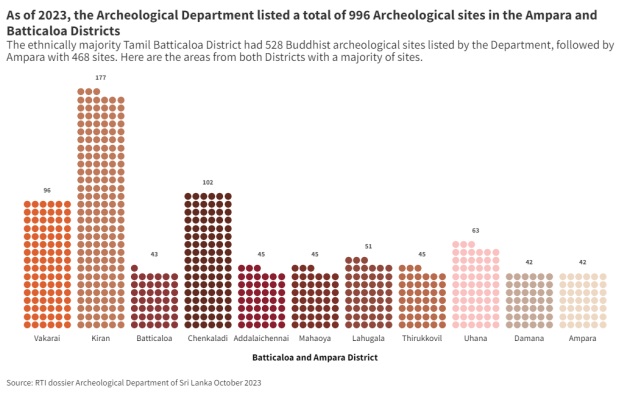
Sri Lanka’s Minister of Buddhashasana, Religious and Cultural Affairs vowed to press ahead with ‘archaeology’ encroachments in the Eastern province, despite complaints from resident Tamils in the region who have pushed back against the government’s ‘Sinhalisation’ attempts.
“Is it something that we shouldn’t do?” questioned Vidura Wickramanayaka in a press conference last month. “We have been very myopic about these things,” he claimed.
“If you look at the point of view of a racist, then we may not be able to get along or go ahead with these types of preservations,” he continued, as tensions in the Tamil homeland continued to flare.
His remarks came at a press briefing to announce a new bill aimed at formally managing the “discovery and preservation” of Sri Lanka’s “antiquities and archaeological heritage”.
The Department of Archaeology has been accused of encroaching on land belonging to non-Buddhists in the North-East, as part of attempts by the state to grab land and establish a Sinhala Buddhist presence.
“By preventing the Archaeology Department from going ahead with their excavations and other processes I don’t know what they gain,” continued Wickramanayaka. “They may make a claim that no, this is our land. Ok, fine but can we erase history?”
Economy Next reported that the archaeology department has already earmarked 996 “archaeological sites” in Amparai and Batticaloa Districts alone, just in 2023.

Read more from Economy Next here.
The Eastern province, which has been historically inhabited by Tamils, has come under decades of intense Sinhalisation and colonisation from state-sponsored settlement schemes.
In recent years, the state has used the guise of ‘archaeology’ to take over vast areas of land in the North-East, and mark them as ‘Buddhist sites’. The US State Department’s International Religious Freedom Report for 2016 said that the construction of such sites and Buddhist statues in non-Buddhist areas in the North-East, despite objections from locals left civil society with the perception of “Buddhist Sinhalese religious and cultural imperialism”.
We need your support
Sri Lanka is one of the most dangerous places in the world to be a journalist. Tamil journalists are particularly at threat, with at least 41 media workers known to have been killed by the Sri Lankan state or its paramilitaries during and after the armed conflict.
Despite the risks, our team on the ground remain committed to providing detailed and accurate reporting of developments in the Tamil homeland, across the island and around the world, as well as providing expert analysis and insight from the Tamil point of view
We need your support in keeping our journalism going. Support our work today.
For more ways to donate visit https://donate.tamilguardian.com.

